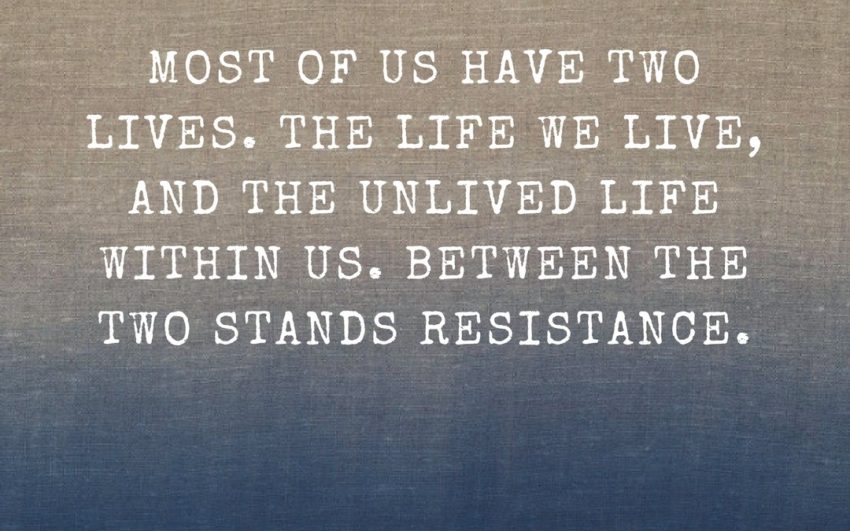Like all good books, this is short and to the point.
The War of Art starts with the premise that most of us have 2 lives – the life we live and the unlived life within us. What prevents us from living the unlived life is Resistance. Pressfield defines Resistance, gives us techniques to overcome Resistance and finally in the 3rd section of the book describes a life beyond Resistance.
- Do we have to stare death in the face in order to overcome Resistance?
- Procrastination is the most common manifestation of Resistance because it is easiest to rationalize. We don’t tell ourselves “I’m never going to write my symphony.” Instead we say, “I am going to write my symphony; I’m just going to start tomorrow.”
- We unplug ourselves from the grid by recognizing that we will never cure our restlessness by contributing our disposable income to the bottom line of Bullshit, Inc., but only by doing our work.
- Socrates demonstrated long ago that the truly free individual is free only to the extent of his own self-mastery. While those who will not govern themselves are condemned to find masters to govern them.
- The professional dedicates himself to mastering technique not because he believes technique is a substitute for inspiration but because he wants to be in possession of the full arsenal of skills when inspiration does come by.
- The professional keeps his eye on the doughnut and not on the hole. He reminds himself it’s better to be in the arena, getting stomped by the bull, than to be up in the stands.
- Resistance feeds on fear. We experience Resistance as fear. But fear or what? Fear That We Will Succeed. That we can access the powers we secretly know we possess. That we can become the person we sense in our hearts we truly are. This is the most terrifying prospect a human being can face, because it ejects him at one go from all the tribal inclusions his psyche is wired for and has been for 50 million years. We fear discovering that we are more than we think we are.
- Territory vs. Hierarchy : In the animal kingdom, individuals define themselves in 1 of 2 ways – by their rank within a hierarchy or by their connection to a territory. The hierarchical seems to be the default setting. It’s only later in life, usually after a stern education in the university of hard knocks, that we begin to explore the territorial alternative. For some of us, this saves our lives.
- We humans seem to have been wired by our evolutionary past to function most comfortably in a tribe of 20 – 800. But at some point it (the tribe) maxes out. Our brains ca’t file that many faces. We thrash around, flashing our badges of status (Hey, how do you like my Lincoln Navigator?) and wondering why nobody gives a shit. We have entered Mass Society. The hierarchy is too big. It doesn’t work anymore.
- The artist must operate territorially. He must do his work for its own sake. To labor in the arts for any reason other than love is prostitution.
- A test to see if your work is territorial : Of any activity you do, ask yourself: If I were the last person on earth, would I still do it?
- The Fruits Of Our Labor: When Krishna instructed Arjuna (in the Bhagvad Gita) that we have a right to our labor but not the the fruits of our labor, he was counseling the warrior to act territorially, not hierarchically. We must do our work for its own sake, not for fortune or attention or applause.
Watch this video:
